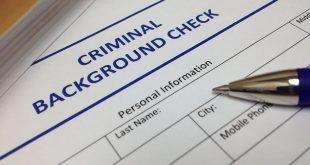 If you get involved in a car accident, it is normal that you would want to know who will pay for the repairs and what you need to do to get the necessary compensation for the accident.
If you get involved in a car accident, it is normal that you would want to know who will pay for the repairs and what you need to do to get the necessary compensation for the accident.
Settling this will largely depend on factors such as the state in which the accident happened – different states typically have different requirements, laws and policies – the party at fault, how much car insurance coverage the other party has and your own car and property damage insurance coverage.
We’ll take a look at these conditions individually.
1 – If You’re At Fault and Responsible for the Accident
This is a pretty cut and dry situation. If you’re responsible for the accident – this includes accidents caused by your own distraction and negligence – then the repair costs of the car damage will come from your pockets. Or if you have collision coverage, you can file a claim for that.
Please note that there’s no point in filing a claim against your collision coverage if the damage is minor. Doing that will most likely result in higher premiums in the future.
2 – Can You Use Your Own Comprehensive Coverage
If you aren’t responsible for the accident, you were rear-ended at a stop sign or red light, or your car was parked when the accident happened, you could file a claim against your own comprehensive insurance coverage if the at-fault party takes off.
Your comprehensive insurance coverage typically covers situations like this. It’s meant to take care of costs incurred by you, the other party and any extra damages caused by things like fallen poles or trees.
However, if the other party is available and has adequate insurance coverage, then it’s a no-brainer. He will be responsible for the payment. In situations like this, there’s no need for any proof of no-fault.
3 – What Happens When the Cost Exceeds My Insurance Policy?
This is often a tricky situation. People typically expect their insurance providers to cover all their car damage costs even when it’s more than the value of their insurance policy. In scenarios like this, your insurance provider will only cover your costs up to its policy limits. The rest you’ll have to pay from your pockets. If you’re not at fault, the same principles apply. The insurance provider will only cover up to its client’s insurance policy limits and leaves the rest for the at-fault party to pay.
For instance, if the cost of repairing your vehicle is $8,000 and the at-fault party’s insurance coverage can only cover $5,000, that’s the amount the insurance company will pay. The rest will have to come from the at-fault’s party’s pockets.
4 – Does the State Play a Role in the Insurance Company’s Decisions?
This is a very interesting question because there are no-faults states and traditional fault states, and the insurance policies in each state tend to differ. If the accident happened in some no-fault states, your vehicle insurance provider will compensate you for the car damages sustained during the accident.
In other no-fault states, your coverage may not extend to vehicular damage compensation. As a result, you will need to find out what the law says about such things in different states. In traditional fault states however, you will need some proof that will indicate that you were not at fault.
This is the only way you’ll be able to get the compensation owed you from the at-fault’s party’s insurance provider. In the event that you lack proof and the insurance company still decides to pay out the compensation claims, you might not get full compensation.
Furthermore, if the insurance company refuses to pay you or wants to underpay you, you can either take what they give you or file a lawsuit. If you’ll be doing the latter, be sure to consult with an experienced accidents and personal injury lawyer with a track record of success. It’s the only way you’ll be able to get what you’re owed.
Author Bio
Oscar King works as an auto-insurance agent in Orlando when he’s not sharing tips and tricks he has learned about how payouts in a car accident are handled. Many of his clients seek legal action as well when medical expenses start to pile up, and in these situations he often refers his clients to David R. Heil. You can find out more about Oscar, including examples of his work, on Google+.
